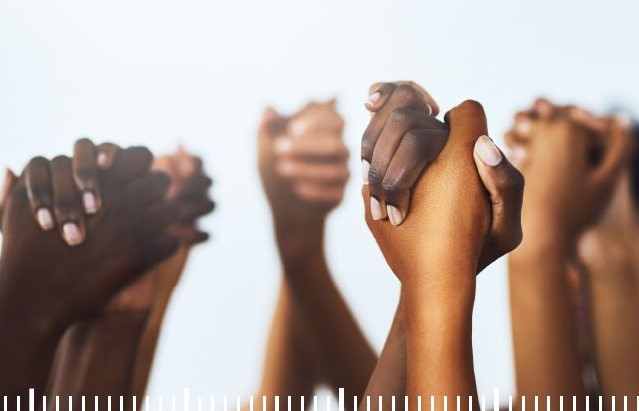SAMRC research shows that rape survivors are at greater risk of HIV infection for years to come
 Cape Town | As the world rallies to commemorate the 32nd World Aids Day, a research study by the South African Medical Research Council (SAMRC) shows that HIV negative women rape survivors have a greater risk of acquiring HIV for years after the rape – this is due to the long-term negative impact of rape on survivors’ mental health and well-being which together with structural and societal factors drives both sexual violence and HIV and thereby increasing rape survivors vulnerability to HIV infection.
Cape Town | As the world rallies to commemorate the 32nd World Aids Day, a research study by the South African Medical Research Council (SAMRC) shows that HIV negative women rape survivors have a greater risk of acquiring HIV for years after the rape – this is due to the long-term negative impact of rape on survivors’ mental health and well-being which together with structural and societal factors drives both sexual violence and HIV and thereby increasing rape survivors vulnerability to HIV infection.
The RICE Study recruited women aged 16-40 years who sought care for a rape in the Durban metro region between 2014-2019. The women were interviewed and had their HIV status assessed at regular intervals and were followed up alongside a comparison group of women who reported that they had never been raped. In total, the study enrolled 1019 HIV negative women and found that among those who were raped, there was a 60% increased likelihood of contracting HIV, compared to women who had not been raped.
Prof Naeemah Abrahams, GHRU Director and lead researcher on the study said this is an extremely important finding for understanding what health care and support we should provide women after rape.“Our services have always focused on giving post-exposure prophylaxis (PEP) to prevent HIV infections from the rape incident, but this is the first time we have shown with research that much more intensive support for survivors after rape is needed,” she said.
The RICE study is the first longitudinal cohort study globally to compare rape survivors and a control group of women to explore the relationship between rape and HIV over time. Previous research conducted by Prof Abrahams including assessing research on the health impact of rape for the 2010 Global Burden of Disease study, has shown that globally there is very little empirical research on the health impact of rape. This is despite rape being a global problem which affects countless women and girls, and men and boys and non-binary persons each year across the world.
Given the huge burden of HIV infection among women in South Africa, the SAMRC has led the way over three decades in deepening global understanding of the impact of gender-based violence on women’s HIV risk. The findings from the RICE study are the latest important conclusions to emerge from the work of the GHRU.
Prof Rachel Jewkes, Executive Scientist for Research Strategy at the SAMRC added: “the RICE study findings show us how critically important it is for the National Department of Health (NDoH) to update its post-rape care policy and clinical management guidelines. This has been in abeyance for a decade and it is critical that we translate the latest research evidence including this new finding from the RICE study into better health services for rape survivors.”
“This is an incredibly important research finding advancing the evidence base for HIV prevention in South Africa” said Prof Glenda Gray, the SAMRC’s President and CEO, adding that it confirms the value of investing in major research projects so that we can drive evidence-based health policy and practice.
To mark World Aids Day, the SAMRC will also be hosting a Webinar on Rape and HIV titled: “Rape Survivors Need Comprehensive, Long-Term Support to Prevent HIV: Evidence from the rape impact cohort evaluation (RICE) study”. This is a high-level presentation and panel discussion – speakers include: Prof Naeemah Abrahams; Dr Tlaleng Mofokeng (United Nations Special Rapporteur on the Right to Health); Dr Claudia Garcia-Moreno (Lead on Violence Against Women, WHO); Dr Thato Chidarikire (Director of HIV Prevention Programmes NDoH, South Africa) and Adv Pierre Smith, (Acting Special Director of Public Prosecutions).
For many years, the SAMRC has been at the forefront of cutting edge research and innovation to tackle the HIV epidemic in areas such as the prevention of HIV infection from mother-to-child, the development of newer and safer drug regimens, and the health service delivery of antiretroviral treatment, to name a few.
Other HIV/Aids related projects conducted during the COVID-19 period include:
- Patient survey among people living with HIV as supplementary sub-study of the Yomolela Study
- Evaluating the impact of Covid-19 pandemic on routine HIV viral load monitoring and outcomes among PMTCT clients in a rural district.
NOTE TO THE EDITOR:
More about the RICE Study: To read the study brief | Click Here
More about GHRU:
The SAMRC's Gender and Health Research Unit aims to improve the health status and quality of life of women by conducting high quality scientific research. This informs the development of policies, healthcare services and promotion of health. The Unit’s main interest is the prevention of gender-based violence and its impact on the lives and health of women.
The knowledge generated through the Unit’s research and partnership efforts helps the public and policy decision-makers understand current issues including the role of gender inequality and its impact on women’s lives. The Unit host the What Works to prevent violence against women global program | Read more

